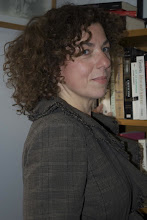In addition to the Ethan Watters article from last month about the cultural variability of what we call mental illness, the New York Times recently ran this piece about the possible evolutionary benefits of major depression. The article draws a connection between depression and creativity: apparently, a disproportionately high percentage of successful creatives have diagnosable "mental illnesses." This observation should no longer surprise people, as philosophers and artists have been meditating on the connection between creativity and mental breakdown for millenia. In our overly scientific/medicalized worldview, however, this connection has come to seem surprising. It didn't surprise Aristotle or Milton.
What is striking about these two recent NYT articles--both of which challenge the view that madness and melancholy are "illnesses" to be treated with drugs--is that they highlight the Faustian seductiveness of the scientific paradigm. Science and medicine, untempered by humanities-based thinking, imagine that knowledge is more discovered than created. The Truth is out there somewhere, and if we just use the right discovery procedures, we will find it. Sometimes, this is indeed true. The earth does revolve around the sun. But not all phenomena lend themselves to such certainty. Mental breakdown can never be fully understood by more extensive experimentation and further knowledge of biochemistry and brain function, because social, cultural, and spiritual factors affect mental breakdown, and physical science contributes rather little to our understanding of society, culture, and the spiritual.
To be continued . . .
http://www.nytimes.com/2010/02/28/magazine/28depression-t.html?pagewanted=1&emc=eta1
Wednesday, March 3, 2010
Subscribe to:
Post Comments (Atom)

Jeanne: I read this, too, and wasn't very surprised that it didn't say anything new (in fact the 'evolutionary benefit' story was in Scientific America last summer). Did you read Louis Menand's essay/book review in a recent New Yorker? I found that to be more thorough, more probing. He admitted what you say--that none of these questions are new.
ReplyDeleteThanks, Repat: I am going to get the Menand article.
ReplyDelete